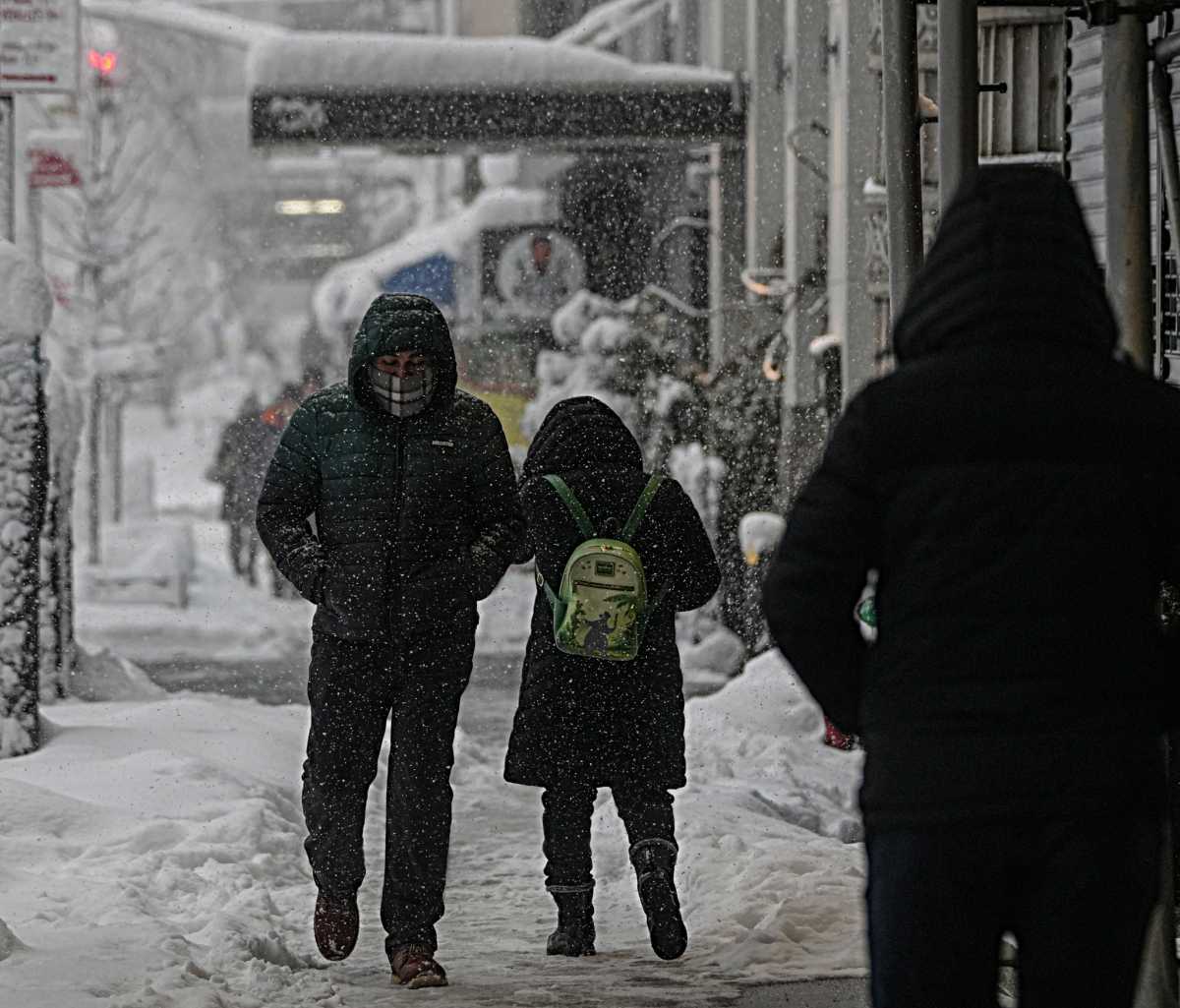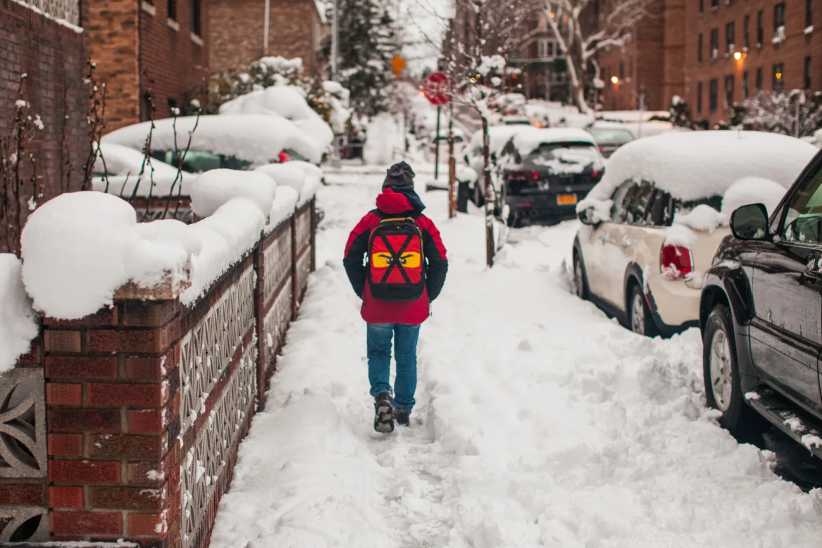The day after her 44th birthday, Michele McIntosh, a single mother of three from Far Rockaway, received a present in the mail she did not want - a foreclosure notice on her condominium.
McIntosh, who originally purchased her condo in 2002 for $110,000 with a 30-year 10.5 percent fixed-mortgage rate, tried to lower her monthly payments of about $1,000 two years later, and found a broker in Queens who offered her a 7.5 percent rate.
Shortly after refinancing, she began seeing her interest rates rise every six months and in October of 2006, her monthly payment was $1,585 per month - a significant amount more than what her payment at the original rate would have been.
“I had no idea about this resetting rate every six months,” she said.
However, McIntosh said that was only the beginning of her problems and troubles. That same month, McIntosh lost her job in a temporary agency that had employed her for the previous six months, and the broker sold her mortgage to Saxon Mortgage Inc.
McIntosh actively sought employment, but without a steady stream of income, she entered into another agreement with Saxon Mortgage in January where she said she made a $1,300 down payment, but her monthly payment would balloon to more than $2,700 per month going forward.
“I agreed to it because I needed to not lose my house,” McIntosh said.
After receiving a tax refund in February, she managed to make that month’s payment, but even though she had gotten a part time job in April, she was unable to make the March and April payments. She claims that she contacted Saxon and representatives from the company gave her hopes that she might be eligible for one of their programs, but when the foreclosure papers arrived on June 13, that hope quickly eroded.
McIntosh is not alone, as foreclosures in Queens, specifically in southeast Queens, have been occurring at record levels throughout the past year, and some experts are predicting little relief in the near future.
Sarah Ludwig, Executive Director of the Neighborhood Economic Development Advocacy Project (NEDAP), whose mission is to serve as a resource and advocacy center for community groups to perpetuate financial justice throughout the city, believes that foreclosures, which are already occurring at record levels across the borough, will continue to increase through the end of 2007.
“They are expected to go up again in the last quarter of 2007,” said Ludwig, who believes that a number of resetting adjustable rate mortgages made in 2005 will bring about another wave of foreclosures. “Those are ready to explode.”
Areas throughout the entire city have seen a spike in foreclosures with filings skyrocketing from 6,873 in 2005 to 9,089 in 2006 with Queens accounting for 2,666 and 3,625, respectively.
Meanwhile, the numbers for 2007 continue that trend. From January 1, 2007 through June 25, 6,743 properties in New York City have seen foreclosure filings, according to a report prepared by NEDAP using statistics from Profiles Publications, which bills itself as New York’s premier foreclosure listing service.
In addition, Queens experienced 2,783 foreclosures, roughly 41 percent of the foreclosures within the city, while Brooklyn’s 2,418 are the only other borough with more than 800 foreclosures so far this year.
Experts believe that subprime loans, which lenders often write for people with a poor credit history and contain high interest rates that cause borrowers to default, as well as Adjustable Rate Mortgages (ARM), which have clauses allowing the interest rate to jump quickly, are two of the biggest factors in the high rates of foreclosure.
“When the interest rate and monthly payment changes take effect, usually within two years, the ARM interest rate can increase drastically and continue to climb by more than one percent and up to a maximum of 16.1 percent throughout the terms of the loans in some instances,” said City Comptroller William Thompson.
On April 26, Thompson’s office set up a foreclosure prevention helpline for residents to call, and since its inception, more than 1,500 people have called the helpline.
“We see the biggest problem as unaffordable loans being made to people,” Ludwig said. “People with modest incomes are being reassured that they can afford $400,000 and $500,000 packages. This is getting people way over their heads and is a huge problem in Queens.”
Oda Friedheim, who has been a staff attorney at the Queens Neighborhood Office of the Legal Aid Society since 1996, has counseled a number of victims of subprime mortgages and recently said her office, has been inundated with requests for help.
“A lot of these homeowners have been pushed into subprime loans when in fact they have been eligible for prime loans,” Friedheim said.
Friedheim noted that according to statistics, the most concentrated areas of foreclosures have occurred in portions of southeast Queens. She believes that lenders often target those areas, which are predominantly poorer areas as well as neighborhoods of color, and that the lack of banks in those neighborhoods often contributes to the high number of foreclosures.
Currently, community organizations and non-profits are working to educate potential homeowners about the dangers of subprime loans, the home-buying process as well as those people already served with foreclosures.
Ann Goldweber, the Director of The Elder Law Clinic at St. John’s University School of Law, said her students often make presentations to educate the community about these issues, but if someone is served with a foreclosure notice, it is important to act quickly.
“If anyone does get a foreclosure notice they obviously shouldn’t ignore them [because] there are certain time limits [to respond to them] under the law,” Goldweber said. “One thing they can do is to call the lender and see if they can work out some kind of repayment plan or loan remodification.”
Meanwhile, McIntosh is continuing to live in her Far Rockaway condo looking for help to keep her home.
She is currently working with representatives from the Margert Community Corporation, a non-profit community-based organization that provides neighborhood housing counseling to low-income tenants and homeowners primarily in the Far Rockaway area, to see if they will represent her and help come up with a payment plan to avoid foreclosure.
“I hope they can help me negotiate something lower, something that I can afford,” she said.
Tips To Avoid Foreclosure
- Courtesy of Oda Friedheim, Staff Attorney at the Queens Neighborhood Office of the Legal Aid Society
If you think you may be a victim of a subprime loan or about to be served with foreclosure papers, use these phone numbers to obtain help:
City Comptroller William Thompson’s Foreclosure Prevention Helpline: 212-669-4600.
State of New York Mortgage Agency (SONYMA) Homebuyers Hotline: 800-382-4663.
Homeownership Preservation Foundation at 888-995-4673.





























